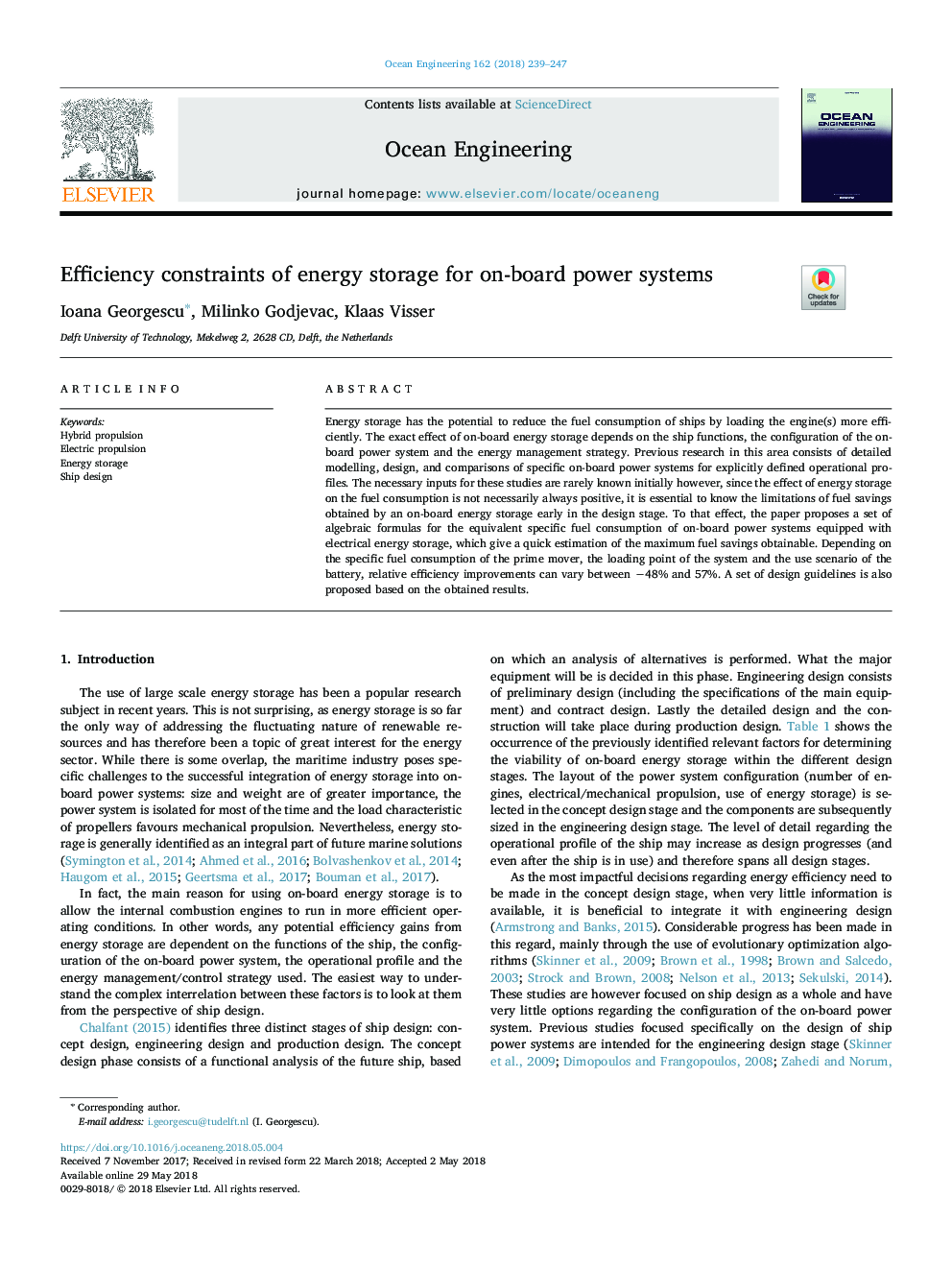| Article ID | Journal | Published Year | Pages | File Type |
|---|---|---|---|---|
| 8062117 | Ocean Engineering | 2018 | 9 Pages |
Abstract
Energy storage has the potential to reduce the fuel consumption of ships by loading the engine(s) more efficiently. The exact effect of on-board energy storage depends on the ship functions, the configuration of the on-board power system and the energy management strategy. Previous research in this area consists of detailed modelling, design, and comparisons of specific on-board power systems for explicitly defined operational profiles. The necessary inputs for these studies are rarely known initially however, since the effect of energy storage on the fuel consumption is not necessarily always positive, it is essential to know the limitations of fuel savings obtained by an on-board energy storage early in the design stage. To that effect, the paper proposes a set of algebraic formulas for the equivalent specific fuel consumption of on-board power systems equipped with electrical energy storage, which give a quick estimation of the maximum fuel savings obtainable. Depending on the specific fuel consumption of the prime mover, the loading point of the system and the use scenario of the battery, relative efficiency improvements can vary between â48% and 57%. A set of design guidelines is also proposed based on the obtained results.
Related Topics
Physical Sciences and Engineering
Engineering
Ocean Engineering
Authors
Ioana Georgescu, Milinko Godjevac, Klaas Visser,
